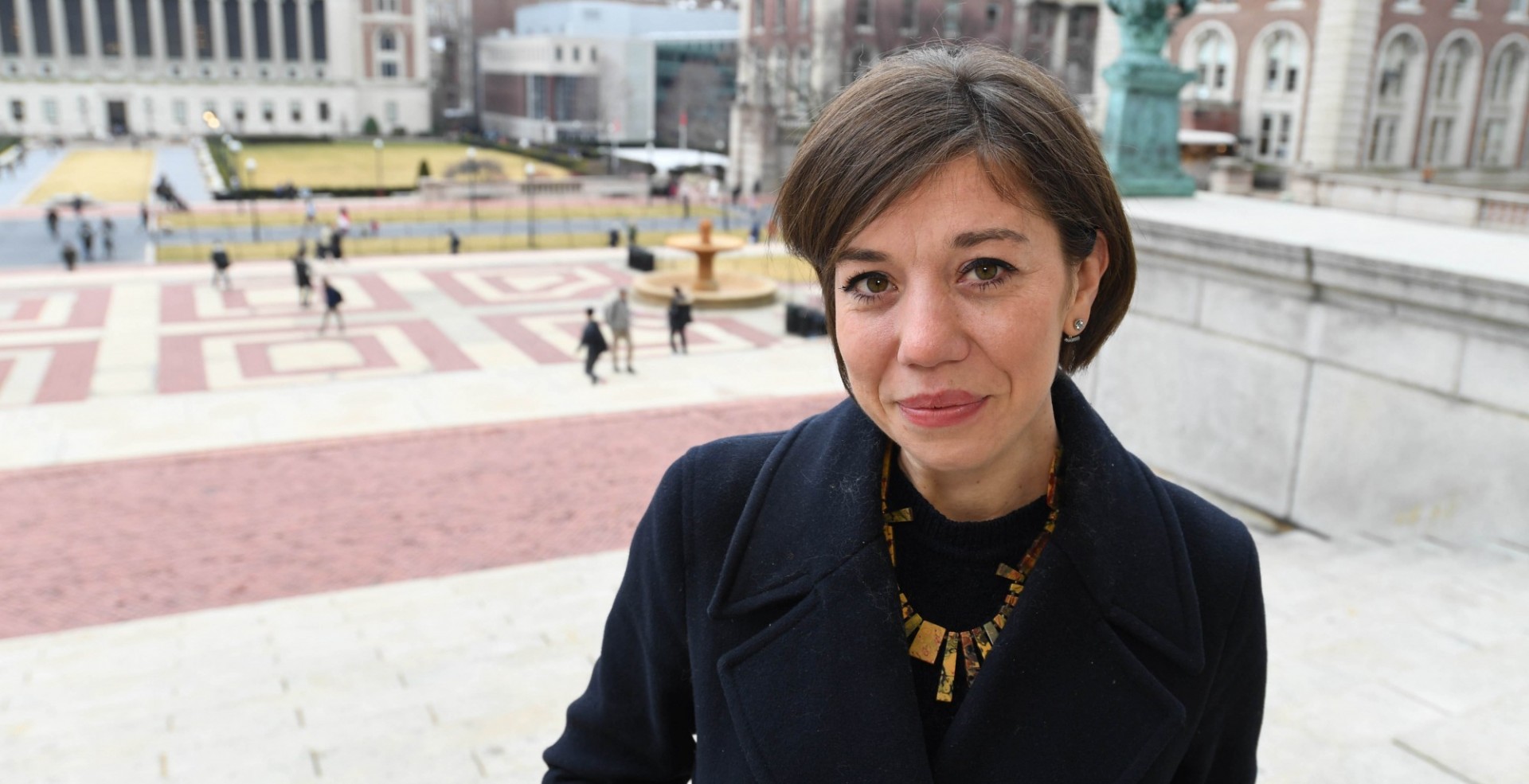Can Brain Science Make Criminal Justice More Humane?

Are psychopaths with damaged brains responsible for their crimes? Can neuroscience support alternative and less punitive responses to crime?
These are the questions of neurolaw—an emerging field at the intersection of neuroscience and law—that Federica Coppola, one of the Presidential Scholars in Society and Neuroscience at Columbia, has made the focus of her work. A former criminal lawyer in her native Italy, she investigates how neuroscience research has been applied in the past and could be used to revise criminal law doctrines, theories of punishment and correctional practices.
“New technologies, such as neuroimaging and other techniques, have advanced our understanding of how the brain shapes human behavior,” said Coppola, who is in her second year of the three-year University fellowship. “These tools already have entered the legal system, but with them come complex questions about the value of using brain-based evidence to determine criminal responsibility, sentencing and an individual’s capacity for rehabilitation.”
Coppola is exploring how neuroscientific links between the brain, emotions, social influences and behavior might be used to reform restrictive and retributive approaches to crime.
“Scientific research demonstrates that the human brain is plastic, that it can change even in adulthood in response to new stimuli and changing environments,” said Coppola.
Conversely, social isolation has been found to suppress the growth of new brain cells. Coppola cites studies in which mice placed in isolation underwent severe structural and functional brain changes that led to high levels of aggression and detachment from their environment. Such findings, she said, may provide critical empirical support for challenging correctional practices like solitary confinement and other harsh forms of incarceration.
Coppola’s cross-disciplinary approach fulfills the vision of the Society and Neuroscience program. Started by Columbia President Lee C. Bollinger in 2014, its mission is to foster communication and knowledge-sharing among experts in the natural and social sciences, arts and humanities to address the ethical, legal and social implications of neuroscience, creating a new paradigm for interdisciplinary research.
Each year Columbia supports two to three post-doctoral scholars on the basis of their proposals and pairs them with faculty mentors. Coppola’s research mentors span medicine, law and psychology: they include Paul Appelbaum, the Elizabeth K. Dollard professor of psychiatry; Geraldine Downey, professor of psychology and director of Columbia’s Center for Justice; and Jeffrey A. Fagan, Isidor and Seville Sulzbacher Professor of Law and Professor of Epidemiology, with whom Coppola co-teaches a newly established “Criminal Law and Neuroscience” seminar at Columbia Law School.
Growing upon Italy’s Amalfi coast, Coppola was strongly influenced by her father, a professor and neuropsychiatrist at the University of Salerno who specializes in treating epilepsy and autism. “As a kid, I was attracted by his electroencephalography instrument that monitors brain waves,” Coppola said. “Everything about the brain and mind fascinated me.” But later, she became sensitive to the problems surrounding criminal justice, especially incarceration, and decided on a career in law.
Coppola earned her J.D. from University of Bologna Law School in 2010 and practiced criminal law for two years in Italy. “I learned a great deal about how the criminal justice system works, but I realized that my passions lay in research,” she said.
After attending a session about neurolaw at a 2011 conference, she was hooked. Coppola earned an LLM (similar to a postgraduate master’s degree) in in 2014 and then a Ph.D. in law in 2017 from the European University Institute. Her dissertation examined how neuroscientific insights into emotions, moral decision making and antisocial behavior may influence theories of culpability, comparing the use of neuroscientific evidence in Italian and American judicial systems.
Once she completes the program at Columbia, she intends to extend her work in neurolaw to the U.S. and European justice systems. Coppola’s ultimate goal is to make criminal justice more humane.
“Neuroscience can contribute to a different narrative of punishment and inform effective changes in criminal justice," she said. “Improving conditions in our overcrowded prisons and treating people in prisons like human beings is necessary to aid in social rehabilitation and facilitate their successful return to the community.”